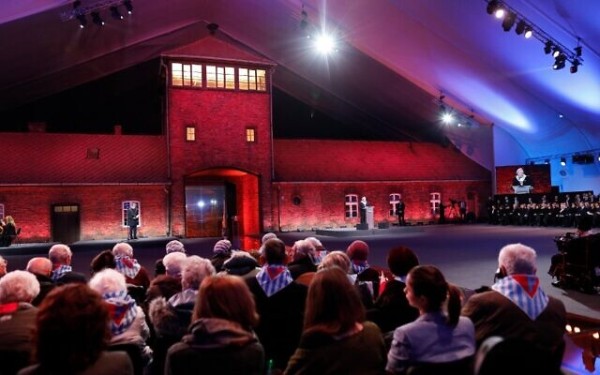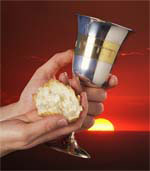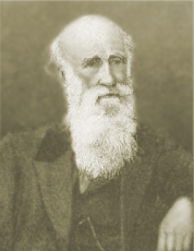At the many commemorative occasions for the liberation of the Auschwitz-Birkenau concentration and death camp, survivors were invited to have some words. Today many showed several signs of getting older, but also of what it means to live with such horrible experiences they had to endure.
Survivors of the Auschwitz-Birkenau death camp prayed and wept as they marked the 75th anniversary of its liberation, returning Monday to the place where they lost entire families and warning about the ominous growth of anti-Semitism and hatred in the world.

Survivors attend the offical ceremony at the former German Nazi death camp Auschwitz-Birkenau during events to commemorate the 75th anniversary of the camp’s liberation in Oswiecim, Poland, on January 27, 2020. – More than 200 survivors came from across the globe to the camp the Nazis built in Oswiecim in then-occupied Poland, to share their testimony as a stark warning amid a recent surge of anti-semitic attacks on both sides of the Atlantic. (Photo by Wojtek Radwanski / AFP)
In one of my previous posts, I mentioned already how at the gates of man made hell, Polish President Andrzej Duda spoke to the many invited leaders of states, as well as Jewish, Christian and Muslim leaders. He noted:
“We have with us the last living survivors, the last among those who saw the Holocaust with their own eyes.”
Everybody could now be seated in front of the entrance to the Auschwitz concentration camp, where on January 27, 1945, the Soviets found themselves seeing what were supposed to be human beings, but looked more like lifeless spooks or ghosts and moving skeletons. When they entered this complex of camps, which included a concentration, extermination, and forced labour camp, they could only find 7,000 left in the camp, because the Nazis killed thousands in a fevered frenzy as the Soviets approached (In ‘The march’).
Of those which the Russians could liberate, most were starving, sick or dying. Every decent human being could straight ahead see that there had been taken place an unforgivable crime, of which the whole world had to hear.
“The magnitude of the crime perpetrated in this place is terrifying, but we must not look away from it and we must never forget it,”
Duda said.
Located 37 miles (60 km) west of Krakow, near the pre-war German-Polish border, many were brought from faraway places like Germany, Holland, Belgium, France, Italy. After their liberation they found even farther places to rebuild a new life. From Israel, the United States, Australia, Peru, Russia, Slovenia and elsewhere this year’s commemoration could still receive about 200 camp survivors. Many lost parents and grandparents in Auschwitz or other Nazi death camps during World War II, but were joined by children, grandchildren and even great-grandchildren.
They gathered under an enormous, heated tent straddling the train tracks that had transported people to Birkenau, the part of the vast complex where most of the murdered Jews were killed in gas chambers and then cremated.

President of the World Jewish Congress Ronald Lauder addresses the offical ceremony at the former German Nazi death camp Auschwitz-Birkenau during events to commemorate the 75th anniversary of the camp’s liberation in Oswiecim, Poland, on January 27, 2020. – More than 200 survivors came from across the globe to the camp the Nazis built in Oswiecim in then-occupied Poland, to share their testimony as a stark warning amid a recent surge of anti-semitic attacks on both sides of the Atlantic. (Photo by Wojtek Radwanski / AFP)
Ronald Lauder, the president of the World Jewish Congress, brought to attention that this day was not about political exposition.
“It is about survivors. It’s not about politics.”
World leaders also gathered in Jerusalem last week to mark the anniversary in what many saw as a competing observance. Among them were Russian President Vladimir Putin, U.S. Vice President Mike Pence, French President Emmanuel Macron and Britain’s Prince Charles.
But as so often with world events, politics intruded on that day of remembrance, with Duda boycotting it in protest after Putin claimed that Poland played a role in triggering World War II. Duda had wanted a chance to speak before or after Putin to defend his nation’s record in face of those false accusations, but he was not given a speaking slot in Jerusalem.
Duda said Monday at a news conference that he felt that in Jerusalem,
“Polish participation in the epic fight against the Nazis was ignored.”
At the commemoration, he did not mention Russia by name. Yet he stressed how Poland was invaded and occupied, losing 6 million of its citizens in the war, half of them Jews. He recalled how Poland fought the Germans on several fronts, warned the world in vain about the genocide of the Jews, and for decades has been a responsible custodian of Auschwitz and other sites of the German atrocities.
“Distorting the history of World War II, denying the crimes of genocide and negating the Holocaust as well as an instrumental use of the Auschwitz for whatever purposes is tantamount to desecration of the memory of the victims,”
Duda said.
“Truth about the Holocaust must not die.”
After the end of the war, when
“the world finally saw pictures of gas chambers, nobody in their right mind wanted to be associated with the Nazis,”
Ronald Lauder recalled.
“But now I see something I never thought I would see in my lifetime, the open and brazen spread of anti-Jewish hatred.”
President Reuven Rivlin, who attended the ceremony at Auschwitz, in a meeting with Duda Monday brought up Polish complicity in anti-Jewish violence in World War II saying,
“many Poles stood by and even assisted in the murder of Jews.”
During the meeting in Krakow, Rivlin added that although Nazi Germany was the architect of the Holocaust, others in Europe who helped must also take their share of responsibility.
“We remember that Nazi Germany initiated, planned and implemented the genocide of the Jewish people in Poland and other places and that it takes full responsibility for its actions. And we also remember, with distress, that significant assistance came from across all of Europe, and that also demands the acceptance of responsibility,”
Rivlin said; and forgot mentioning the organised killing of those who would be able to bring the political system of Adolf Hitler in danger, like communists.
Not only ‘anti-Jews’ or ‘anti-Jewish hatred’ is spreading more. The days after the celebration we got to hear many voices showing how cross they were that communists were been allowed to tell about their experience in the camps.
In the two days since one of the keynote speakers, during observances held Monday to mark the 75th anniversary of the liberation of Auschwitz, had spoken, there have been angry comments, with some suggesting Marian Turski had no moral authority because he belonged to Poland’s communist party before 1989. This clearly shows how today a lot of people first of all do not see, or know, the difference between communism, Marxism, Lenilism,Trotskism or any sort of political dictatorship and the difference between political ideology and the rigth to have different oppinions.
Marian Turski, who along with his family was forced into the Lodz ghetto before being deported to Auschwitz, called on people to not remain indifferent when minorities are discriminated against, when history is distorted and when
“any authority violates the existing social contract.”
It should allert us when, today, we can see again certain stateleaders willing to fulminate or blacken certain groups and to defam and obtain defamation.
The Warsaw resident never specifically mentioned Poland’s current nationalist government in his remarks. But many understood his words as criticism of Polish politicians and public officials who have used discriminatory language against migrants, LGBT people and religious minorities, and have sought to harness history as a political tool.
While Turski received a standing ovation on Monday, some members of Poland’s conservative governing party, Law and Justice, who were in the audience did not applaud him.

The inland city and commune in the Metropolitan City of Catania, on the island (and region) of Sicily, southern Italy, where the Jewish Quarter became used to segregate the Jews.
Turski sent a clear message in the air by saying the Holocaust did not “fall from the sky” all at once, but took hold step by step, as society’s acceptance of small acts of discrimination eventually led to parts of part of a cities in which members of a minority group were being isolated to live, typically as a result of social, legal, or economic pressure. Such ghettos were often the first place to starve people and to bring them afterwards to extermination camps.
The way the head of Polish state news broadcaster TVP Info’s website, Samuel Pereira, reacted and wrote on Twitter that
a former Auschwitz prisoner going on to work for the Polish United Workers’ Party showed that “evil can be contagious.”
made it clear that Poland once more has no neutral newspresentators but also that people with an other opinion than theirs are not wished for and should be silenced.
Far-right presidential candidate and member of the Sejm, Krzysztof Bosak accused Turski of using the anniversary to “attack the government.”
Paweł Jabłoński, a deputy foreign minister, told The Associated Press in a statement Wednesday that the government appreciated Turski’s warnings
“as a very important voice to remind us and future generations of the atrocities of World War II” and preserving historical truth.
But he also added in the statement
“we strongly disagree with any attempts at abusing or misusing survivors’ statements for today’s political purposes.”
“Such attempts are deeply insulting to the memory of the victims,”
the statement said.
Turski began his speech by making it clear he did not want to talk about what “he” suffered while imprisoned at Auschwitz, during two forced death marches, or near the end of the war, when he weighed just 32 kilograms (70 pounds). For him this occasion was not about him personally but about what went wrong in a human society which was considered to be Christian and civilised.
For him, who lost 39 family members in the Holocaust, this remembrance, which for many survivors probably would be the last time to speak in public before they die, should be a final warning to his grandchildren’s generation, saying that because of his age it would likely be his last chance.
Citing the words of another survivor, Roman Kent, he described what should be the Eleventh Commandment of the Bible:
“Though shalt not be indifferent.”
Such a call, several survivors mentioning how at first they could live as ordinary accepted citizens, being befriended with many, got more and more excluded, and those who they thought would have been their friends, kept silent when cruelty was done to them. This is what stood by me from the many speaking survivors the last few days.
Every time we had some genocide in this world, we could see that many stood aside, not avoiding such attrocity to happen, nor doing something against it when it happened. Turski correctly warned
“Because if you are indifferent, you will not even notice it when upon your own heads, and upon the heads of your descendants, another Auschwitz falls from the sky.”
Michael Schudrich, chief rabbi of Poland, said Turski’s message was very important because it reminded people that what allowed the Holocaust to happen was not only the evil of the Nazis, but also the indifference of the rest of the world. He said the stir Turski’s words have caused, including negative reactions, meant
“he touched people’s souls.”
“If somebody feels that he is speaking against them, then maybe that person needs to look into himself,”
Schudrich said.
“The fact is, this speech will be quoted for decades and decades, and I hope for centuries. It said what had to be said.”
Many others hailed Monday’s speech as historic, with some comparing it to the one Pope John Paul II gave during a visit to his homeland in 1979, when Poland still was under communist rule.

Dariusz Stola who teaches modern history and studies 20th-century human migrations, the Holocaust, Polish-Jewish relations, and the history of postwar Poland’s communist regime, and is the author or co-author of seven books and of over a hundred scholarly papers.
Professor of history at the Institute of Political Studies of the Polish Academy of Sciences, Dariusz Stola, the former head of the POLIN Museum of the History of the Polish Jews ( Muzeum Historii Żydów Polskich), called Turski’s address a “great speech,” because of the way
“he translated ‘Never again’ into a call for action now and against small wrongdoings.”
The Polish sociologist and political scientist Rafal Pankowski, who heads Nigdy Więcej (Never Again), a Warsaw-based association that monitors hate speech and crimes, said amid a rise in xenophobia, the negative reactions to the speech were not surprising “but still shocking.”
“I and a lot of other people were really moved by the speech, and it will stay with us for a long time,”
Pankowski said.
“Turski didn’t name anyone. It dealt with the universal and global challenges of xenophobia and intolerance. I think anybody could relate to it from any place in the world, and this is what made it so powerful.”
People who felt annoyed or spoken too, should wonder why it gave them a bad feeling as if they were pointed at. They should wonder if they have any prejudice against certain people, be it for their political thoughts, their race or their religon.
On the eve of the commemorations, survivors, many leaning on their children and grandchildren for support, walked through the place where they had been brought in on cattle cars and suffered hunger and illness and came close to death. They said they were there to remember, to share their histories with others, and to make a gesture of defiance toward those who had sought their destruction.
For some, it is also the burial ground for their parents and grandparents, and they said they would say kaddish, the Jewish prayer for the dead.
“I have no graves to go to and I know my parents were murdered here and burned. So this is how I pay homage to them,”
said Yvonne Engelman, a 92-year-old Australian who was joined by three more generations now scattered around the globe.
She recalled being brought in from a ghetto in what was then Czechoslovakia by cattle car, being stripped of her clothes, shaved and put in a gas chamber. By some miracle, the gas chamber that day did not work, and she later survived slave labour and a death march.
A 96-year-old survivor, Jeanette Spiegel, was 20 when she was brought to Auschwitz, where she spent nine months. Today she lives in New York and is fearful of rising anti-Semitic violence in the United States.
“I think they pick on the Jews because we are such a small minority and it is easy to pick on us,”
she said, fighting back tears.
“Young people should understand that nothing is for sure, that some terrible things can happen and they have to be very careful. And that, God forbid, what happened to the Jewish people then should never be repeated.”
It are those youngsters, the older generation has to warn for the danger of politicians who distort the truth and who create division. It are the leaders who should make sure that the voices of those who withstood horror shall be heard over and over again.
In Paris, French President Emmanuel Macron paid his respects at the city’s Shoah Memorial and warned about rising hate crimes in the country, which increased 27% last year.
“That anti-Semitism is coming back is not the Jewish people’s problem: It’s all our problem — it’s the nation’s problem,”
Macron said.
Every nation, which wants to call itself a civilised country, wanting to go into the 21st century going for a better future, should try first to make a good fertile soil, providing good education and give their inhabitants some historical background and insight how manipuation and propaganda should be recognised and avoided.
Hundreds of diplomats and guests along with several Holocaust survivors joined U.N. Secretary-General Antonio Guterres and General Assembly President Tijjani Muhammad-Bande for a ceremony at the United Nations in New York.
“May we make a pledge: We stand united against hate,”
said Rabbi Arthur Schneier, a Holocaust survivor.
“We stand united against anti-Semitism. We stand united against xenophobia and racism and any form of bigotry.”
Guterres said that
“solidarity in the face of hatred is needed today more than ever,”
and that the U.N.
“will stand firm every day and everywhere against anti-Semitism, bigotry and hatred of all kinds.”
+
Preceding
2012 mensenrechten rapport – 2012 Human Rights report
Black page 70 years Release – commemoration Auschwitz
World remembers Auschwitz survivors
Luca Jahier, EESC President on the present intolerance
2019 was #4 a Year of much deceit in Belgium and the rest of Europe
Jerusalem Ballet paying tribute to Franceska Mann
Is it really true that Anti-Semitism will never be tolerated?
++
Find also to read
- Reformed Churches Muzzled but Protest at Barmen
- Christadelphians’ role in the rescue of Jewish children from Nazi Germany
- Christadelphians, the Kindertransport, and Rescue from the Holocaust
- Seventy-five years ago on January 27
- January 27 – 70 years ago Not an end yet to genocide
- 75th anniversary of the liberation of Auschwitz
- 5th World Holocaust Forum
- Dedication ceremony for a memorial at Jerusalem’s Sachar Park in honour of the casualties of the Siege of Leningrad
- What’s the Future of Holocaust Remembrance?
- 25 Orthodox rabbis issued a statement on Christianity
- A Quarter of Europeans are Still Antisemites
- Israeli leaders delight in Europe’s cruelty toward refugees
- The danger of having less than 25 000 Jews in Belgium
- the Soup will not be eaten as hot as it is served
- Through the Lens of Faith
- Nazi Germany




























 Biblestudents – Bijbelstudenten
Biblestudents – Bijbelstudenten 0 + Bloggers for Peace
0 + Bloggers for Peace Free Christadelphian Ecclesia
Free Christadelphian Ecclesia Hoop tot Leven – Redding in Christus
Hoop tot Leven – Redding in Christus Vrije Broeders in Christus (Free Flemish Christadelphians on Wordpress)
Vrije Broeders in Christus (Free Flemish Christadelphians on Wordpress)















Pingback: How a British ‘Master Spy’ Saved Thousands of Jews in the Holocaust | From guestwriters
Reblogged this on hungarywolf and commented:
Guest blog from Marcus Ampe
LikeLike
Pingback: Oswiecim | From guestwriters
Pingback: United States of America once more showing how it wants to Distort Historical Facts and Truth | Marcus Ampe's Space
Pingback: An Anniversary forgotten | From guestwriters
Pingback: Perhaps Anti-Semitism for lots of people isn’t always easy to see | From guestwriters
Pingback: Hoe ver kan men gaan om zich te beroepen op Vrije meningsuiting | From guestwriters
Pingback: Aalst Carnival and Unia analyses reports | From guestwriters
Pingback: Aalst Carnaval 2020 a further anti-Jewish demonstration | Marcus Ampe's Space
Pingback: By the commemoration of the liberation of the Auschwitz-Birkenau camp #2 Holocaust deniers and twisters of the truth – Some View on the World
Pingback: What is Fascism and who are today’s Fascists? | Marcus Ampe's Space
Pingback: Rights of Polish people in danger – Some View on the World
Pingback: Anti-Defamation League’s survey showing the problem of American anti-Jewishness – Immanuel Verbondskind – עמנואל קאָווענאַנט קינד
Pingback: Anti-Semitism: Dramatic rise in 2021, Israeli report says | Stepping Toes
Pingback: More than seven anti-Semitic incidents in the U.S.A. per day – Immanuel Verbondskind – עמנואל קאָווענאַנט קינד
Pingback: Tel Aviv University study found a record-high number of reports of antisemitic activity throughout the world in 2021 – Jeshuaisten / Jeshuaists
Pingback: Remembrance of the beginning of the Warsaw Ghetto Uprising – Immanuel Verbondskind – עמנואל קאָווענאַנט קינד
Pingback: Warsaw Ghetto in 1940 a big horror part of Warsaw not to be forgotten – Jeshuaisten / Jeshuaists
Pingback: Jews who remained in the shelters and bunkers of the Warsaw ghetto – Jeshuaisten / Jeshuaists
Pingback: The battles, an angel and a lion – Immanuel Verbondskind – עמנואל קאָווענאַנט קינד
Pingback: Yom HaShoah and International Holocaust Memorial Day – Immanuel Verbondskind – עמנואל קאָווענאַנט קינד